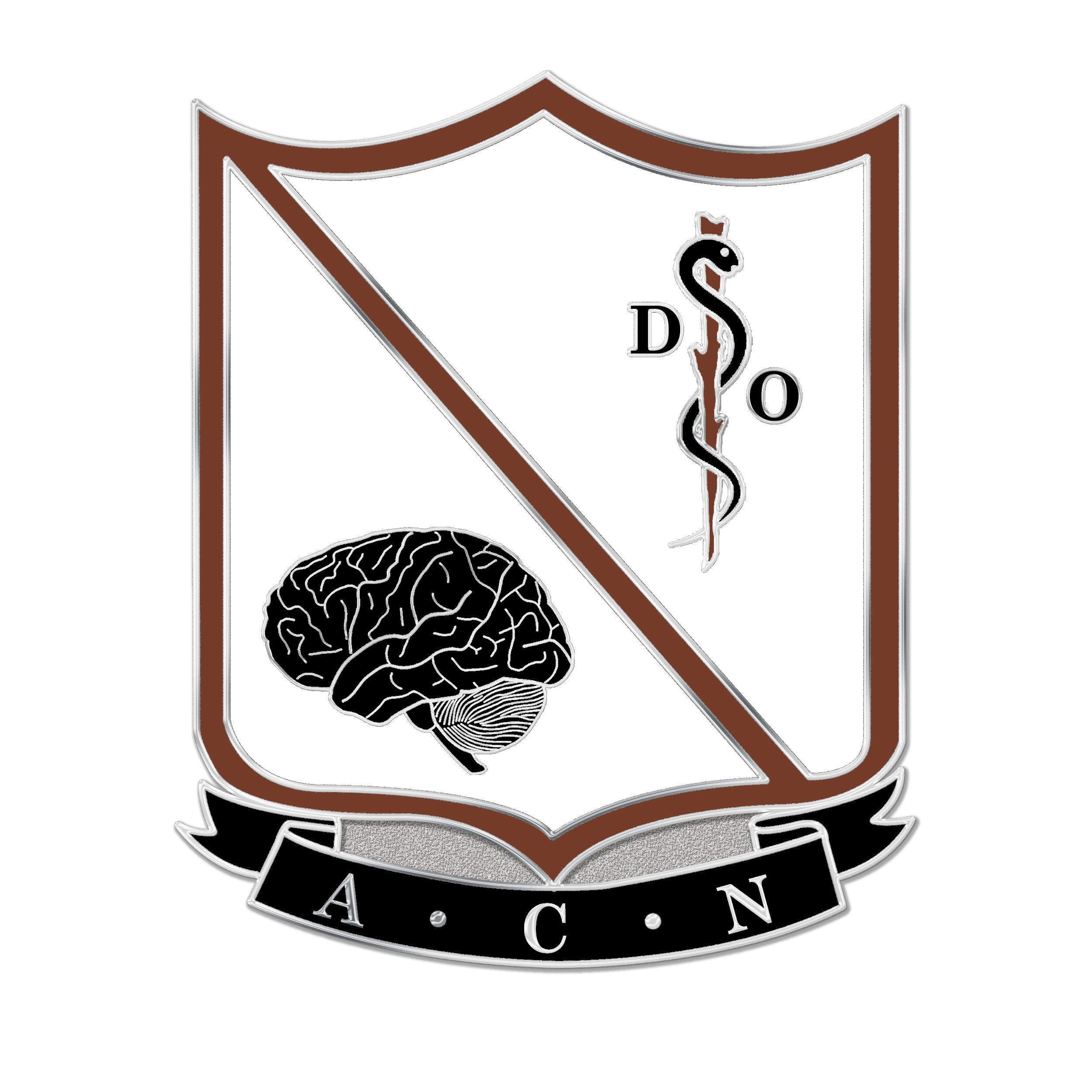The American College of Neuropsychiatrists
(An Osteopathic Institution)
By Floyd E. Dunn, D.O., F.A.C.N., F.A.A.M.D.
Editorial
The American College of Neuropsychiatrists is the bulwark within the Osteopathic profession against inadequate and poorly prepared service in neurology and psychiatry. The honor coincident with fellowship is a distinctive one and must be earned. In a world population of approximately 10,000 osteopathic physicians only seventeen have been so honored. There may be criticism of some of these seventeen, largely because they were recognized on a charter basis, but there must never be a route for criticism of any future fellows. It is the duty of every fellow and associate of the A.C.N. to work unceasingly to maintain the high requirement level of professional knowledge and skill that prevails at the present time. In none of the specialties of our profession has as much thought, planning, and sacrifice gone to make available the best at our command for the training of candidates for recognition, as in ours. Everyone can do something to help keep this standard. No one should try to lower or exempt any of the requirements, for to do so would reflect directly on that one. Most of all, however, we can do our bit by the excellence of our publications. Whenever any studies are submitted for print they should bear evidence of thorough knowledge and study of the subject and if possible add some bit of information to the store of data on the subject.
The teaching of neuropsychiatry is a responsibility that must not be taken lightly. This applies to undergraduate as well as graduate teaching. The groundwork for a respect and appreciation of these specialties is laid in the undergraduate years. Much of the prejudice against psychiatry that is widespread among physicians today is a result of the impression left with the medical student before graduation. Modern teaching requires clinical facilities. This is especially true of graduate study, but also applies to the undergraduate year. The acumen that is necessary in the specialist can be acquired only by long months of tedious drill and by a constant parade of clinical entities before the student. Psychiatry especially requires a change in mental attitude and its skills involve a mastery of self beyond that of any channel of human endeavor. It is usually advised that the prospective psychiatrist be psychoanalyzed or at least have his personality thoroughly inventoried. But this is not enough, for the mechanics of successful treatment are based upon the acquisition of a passive attitude toward the therapeutic situation, coupled with enough aggressiveness to move when the opportune moment presents itself. These are aspects that cannot be learned from books, or by just seeing patients. They require prolonged practice and a ready ability to recognize one’s own shortcomings and errors. Neurology, perhaps as much as any field of medicine, is a science of exact diagnosis that can be mastered only by a perfection of detail. In many instances this is acquired only by long painful application to elementary principles.
The responsibility of this teaching program rests upon the shoulders of the fellows of this college. It is a matter of personal efficiency to see that it is well handled, and to demand poor training be corrected.
Thomas J. Meyers, D.O.
Other colleges of osteopathic medicine soon began to revise, modernize, and expand their departments of neurology and psychiatry. The next to report change was the Kansas City College, where Grover N. Gillum headed the department. An item in the January 1947 Bulletin reported that the department there had been “expanded and brought into line with the recommendations of the American College of Neuropsychiatrists.” The first Fellow in the department, Dr. Ralph I. McRae had begun his graduate training program. Ralph was destined to head the Department of Neurology & Psychiatry at the Des Moines College following his certification, and later to become President of the A.C.N.
By 1948, recognition and respect for the American College of Neuropsychiatrists by those in the official family of the American Osteopathic Association had grown to the degree that we were invited to present, at the A.O.A. Annual Sessions in Boston, “the most ambitious program yet attempted, under the Chairmanship of Dr. Floyd E. Dunn”, according to the June 1948 issue of the Bulletin. The program consisted of a one-day symposium on neurology and a three-day symposium on psychosomatic medicine.
